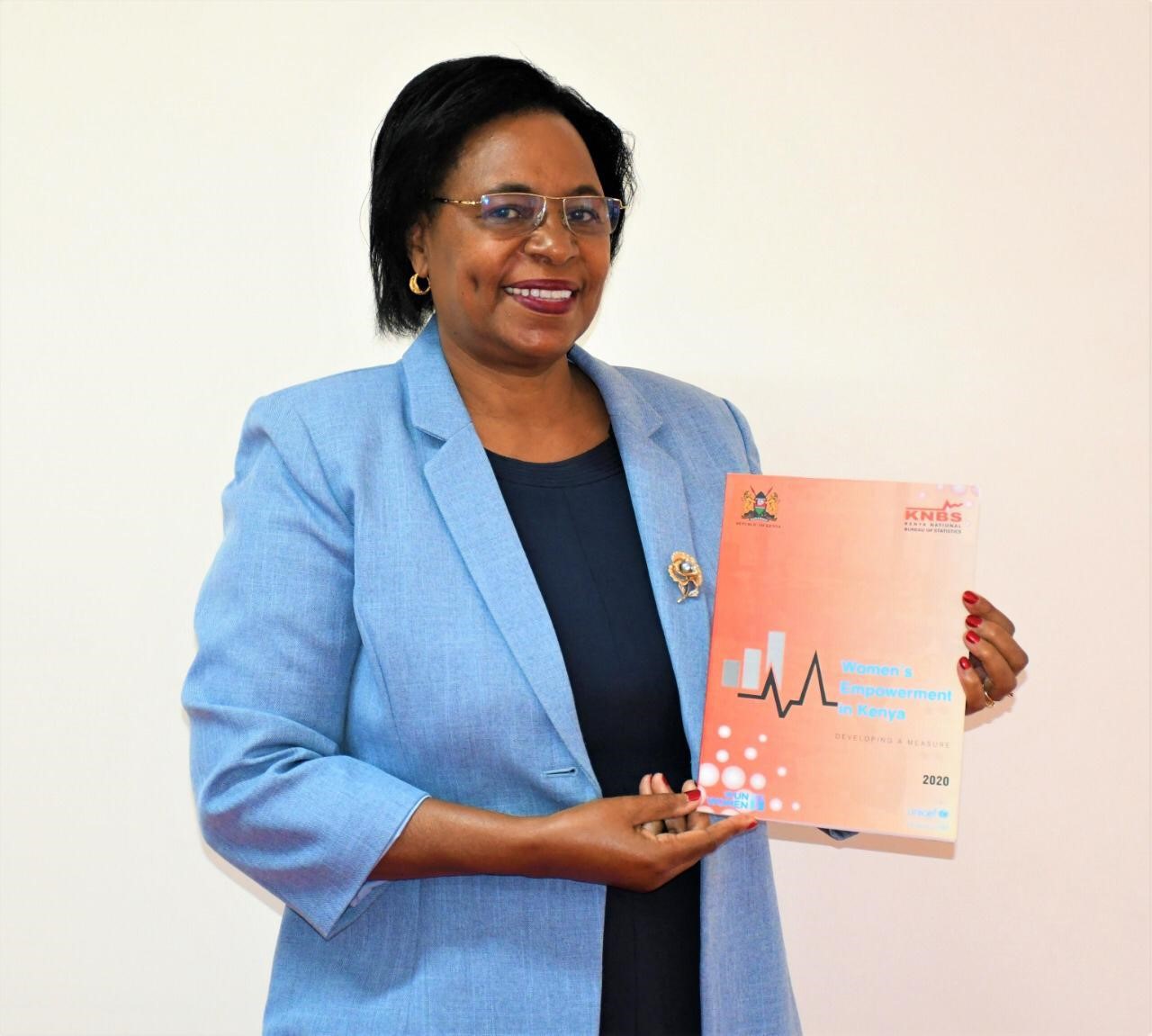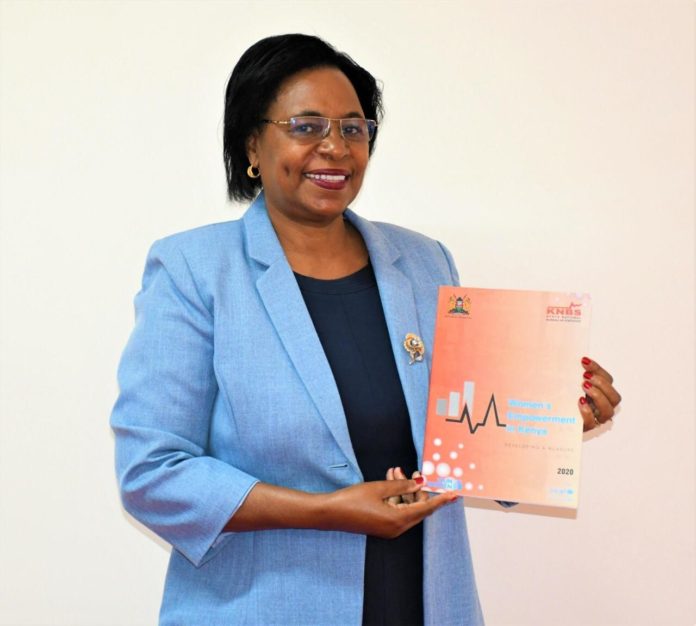By Clifford Akumu
Nairobi, Kenya: The rate of women empowerment in Kenya is still lagging despite numerous strides, exposing a stubborn gender equality gap, a new report now shows.
Only one in every three women countrywide can today participate equally in routine elements of daily economic, social, political, and cultural life. And the women’s ability to participate in activities such as owning land, earning secondary education, making major household decisions, and accessing modern contraception-considered their level of empowerment-is largely pegged on geographic, economic, and social levels.
In the report, only 29 percent of women in Kenya between the ages of 15-49 years are empowered, according to a report released by the Kenya National Bureau of Statistics in partnership with the state Department for Gender, UN Women and UNICEF.
The report, Women Empowerment Index, further indicates that the empowerment rate of women in urban areas is at 40 percent, nearly double the rate of empowered women in rural areas which stands at 22 percent.
While the highest rate of empowerment is observed among women aged 15-19 years (35 percent) it is lowest among women aged 40-49 years (24 percent), continues the report. The report, the first comprehensive and systematic measure for women and girl’s empowerment in the country, is a tool that will build the capacity of counties in achieving gender inclusivity.
“It breaks the new ground towards women empowerment and gender equality,” Prof Margaret Kobia, Cabinet Secretary, Ministry of Public Service and Gender said during the virtual launch.
The results are based on data collected from women aged between 15-49 years during the 2014 Kenya Demographic and Health Survey.

Unemployment continues to be a challenge for women. Female poverty is excavated by gender-based violence among others.
According to the 2019 Kenya Population and Housing Census, women comprise 50.5 percent of the county’s population. Women empowerment is thus critical in realizing sustainable development goal 5.
Professor Kobia noted that Kenya had made strides in signing and ratifying gender equality treaties both regional and international, but warned that more needed to be done.
However, Global Gender Gap Index of 2020, by the World Economic Forum-that captures the magnitude of gender-based disparities and tracking their progress over time, still shows Kenya’s dismal performance, a situation Kobia notes, “should send a warning for the country that attaining gender equality is not only pegged on policy interventions”.
“We are committed to ending gender inequality. Women empowerment holds the key in achieving the government agenda,” said UN Women Country Director Anna Mutavati.
The launch coincides with the marking of 10 years since the creation of devolution. Wycliffe Oparanya, Chairman Council of Governors said that counties were at the forefront of supporting gender agenda.
Oparanya reiterated the effects of the Covid-19 pandemic might grind to a halt ongoing women empowerment initiatives and gains across several counties.
“The time is ripe to think about new ways of achieving women empowerment and capacity building in counties,” said Oparanya.
“Despite these efforts the Covid-19 even the limited gains on gender agenda risks being rolled back due to economic disparities,” said Oparanya.
Eugene Wamalwa, Cabinet Secretary, Devolution, and ASALs said the index will enable counties to access the progress of women empowerment in different counties. “We have seen significant progress since the advent of devolution. But, we still remain a regional dwarf when it comes to matters of women empowerment. We want to see what can be done to address gender parity issues,” said Wamalwa.
Ukur Yattani, National Treasury and Planning CS while launching the report while noting the economic shocks caused by the Covid-19 pandemic, stressed the need to rethink resource allocation towards women empowerment.
“We are going to make progress in budgeting to plan with the view of reversing these unfavorable conditions for women empowerment. We have to develop effective strategies to address the remaining 71 percent of women who are not empowered.”
“We are in the era of Covid-19 confrontations but we will be careful to allocate appropriate resources to these areas based on the analytical reports launched today,” Yattani told the virtual launch.
The stakeholders further stressed the need for gender-disaggregated data, especially on neglected areas such as teenage pregnancies, child marriages, and gender-based violence.
“We need information that is comprehensive, time-sensitive, and use it to plan for the avail services to women. As it is, we are still relying on old data, for example. When it comes to GBV cases” noted Colleta Suda, Principal Secretary, State Department for Gender.














